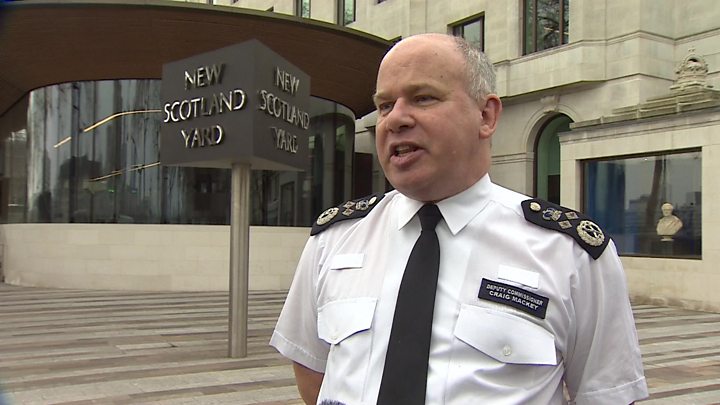Media playback is unsupported on your device
Victims of serious crime may be able to sue the police for failures in their investigations following a landmark ruling by the Supreme Court.
The Metropolitan Police lost an appeal against two rape victims, who won compensation over its handling of the case of black cab rapist John Worboys.
The women had argued their treatment by police caused them mental harm.
The judge said if an investigation was "seriously defective", then this "will be enough to render the police liable".
The Met said it fully accepted the ruling, and that there was "no doubt" it would have implications for future investigations.
Human rights organisation Liberty said it was a "landmark" decision.
One of the victims, known as DSD – the first of Worboys' victims to make a complaint to the police in 2003 – said: "It has been an emotional day. Fifteen years."
In a question directed at the police, she added: "Had you done your job properly, there wouldn't be 105 victims, there would be one.
"I can take the one. I can't take the 105."
Her lawyer Harriet Wistrich said: "It's a very, very important judgment – very important for vindicating the rights of my two clients but also for the other victims of Worboys."
The women are also separately pursuing a judicial review of the Parole Board's decision to release the convicted rapist.
This will almost certainly have profound long-term implications for police forces across the UK – and something that many of them have been dreading, given their resources and the changing nature of modern crime.
— Dominic Casciani (@BBCDomC) February 21, 2018
End of Twitter post by @BBCDomC
Worboys continued to attack women until he was convicted of 19 offences in 2009, when he was ordered to serve at least eight years in jail.
The Met believe he may have carried out more than 100 rapes and sexual assaults on women in London between 2002 and 2008.
Analysis: Legal correspondent Clive Coleman
The ruling is highly significant, both for victims of serious violent crime and for the police forces that investigate it.
It means that if a police force conducts an investigation into the crime which fails in a way which is deemed sufficiently serious, it will be liable to a human rights action brought by the victim.
Successful claims will result in compensation to the victims. The ruling means that there is an additional rigour placed on police forces to ensure they properly investigate violent crime.
The 2010 report by the Independent Police Complaints Commission disclosed many serious failings in the police investigation in Worboys.
So the ruling is likely to lead to more claims by his victims.
However there will be many other victims of violent crime who feel that they were let down by serious police failings, who will now want to consider bringing claims for breach of their human rights.
The women brought their claims under article three of the Human Rights Act – the right not to be subjected to torture or to inhuman or degrading treatment.
Until then, police could not be found to be negligent for generally failing to identify and apprehend an unknown suspect.
The police appealed, arguing its duty was fulfilled simply by having in place practices and procedures to investigate.
However the Met accepted it would not try to recoup damages awarded to the women if the appeal succeeded.

Media playback is unsupported on your device
Giving the Supreme Court's ruling, Lord Kerr said: "By a majority, we have held that failures in the investigation of the crimes, provided they are sufficiently serious, will give rise to liability on the part of the police.
He continued: "The important point to make is that, if the investigation is seriously defective, even if no systemic failures are present, this will be enough to render the police liable."
The Met Police said it "unreservedly apologises to the victims we failed".
Sir Craig Mackey, deputy commissioner of the Met Police, said in a statement that it had appealed because "police forces needed absolute clarity on the boundaries of police responsibility and liability for their investigations".
He added: "There is no doubt that it will have implications for how we resource and prioritise our investigations."
Victims let down 'horrifically'
The appeal followed a 2013 High Court ruling which found the Met was liable to the women – known as DSD and NBV – for failures in its investigation.
DSD said she suffered a depressive disorder as a result of her treatment by officers during the 2003 investigation and was awarded £22,250.
NBV claimed she suffered serious distress, anxiety, guilt and an exacerbation of post-traumatic disorder and depression because of her treatment by police. She was awarded £19,000.
Martha Spurrier, director of Liberty, said: "Having already let these women down in the most horrific way, the Met could have accepted the High Court's ruling four years ago.
"Instead, they used taxpayers' money to drag them all the way to the highest court in the land."
The case comes a month after the government announced it would not challenge the Parole Board's decision to release Worboys after he had served less than 10 years in prison.
[contf] [contfnew] 
BBC
[contfnewc] [contfnewc]






